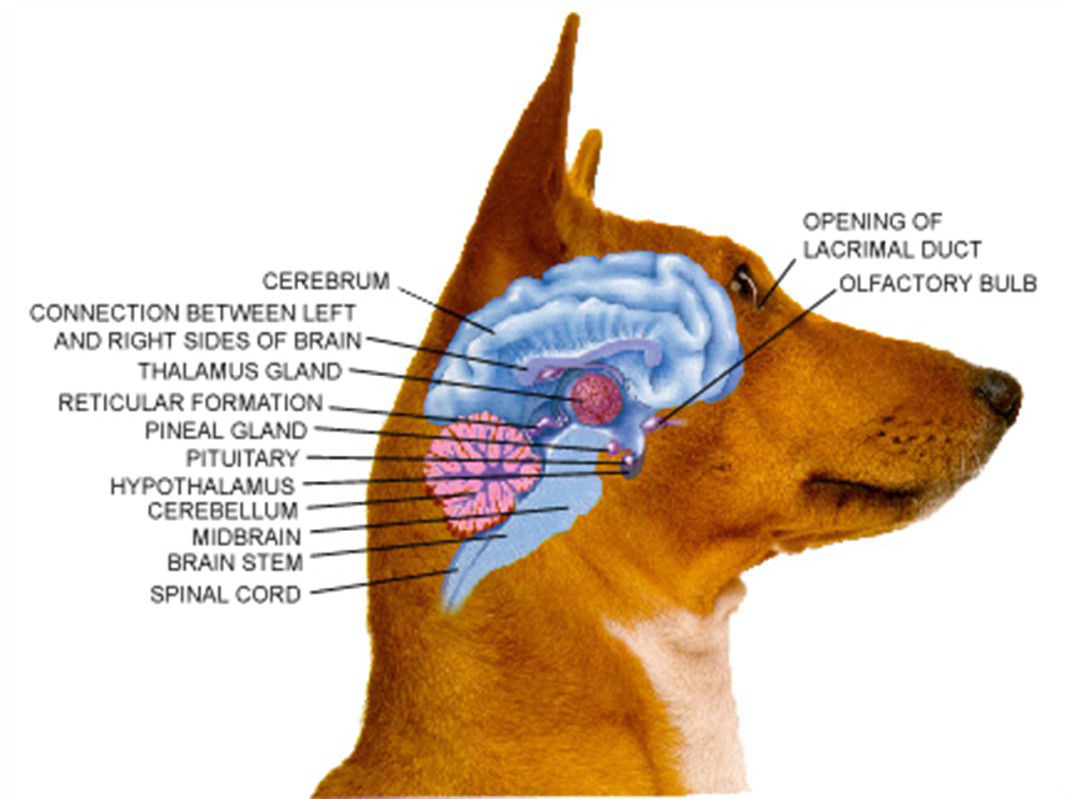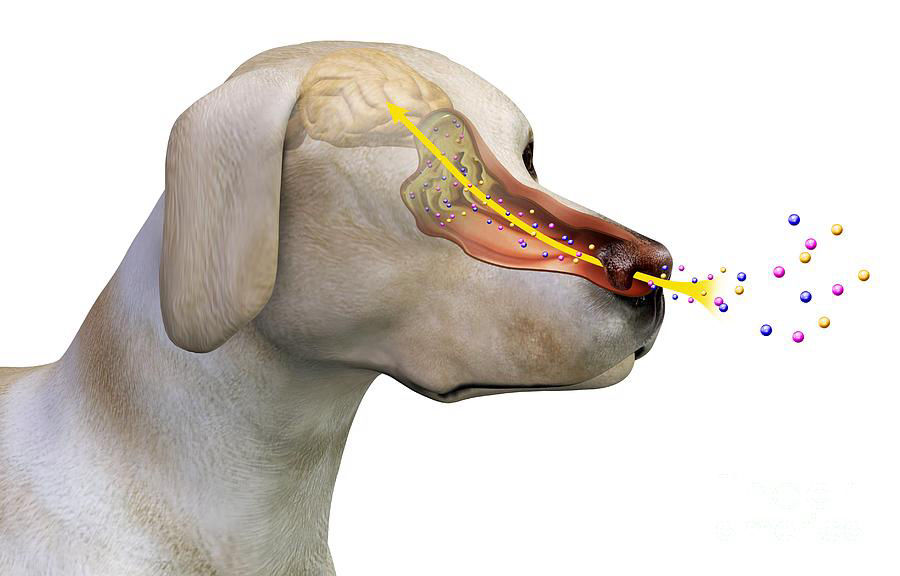
The Dogs Mind
Limbic system is located within the cortex of the brain. It is made up of lots of sensors and circuits which help the dog make decisions based on internal and external factors such as sight, sound, memories, and feelings. “a dog understands his own relationship to the world around him through the proper function of his limbic system” (Dr Bruce Fogle, 1990).
In addition, the amygdala is found within the limbic system and the function of the amygdala is for survival and defence responses.
The rabies virus works by attacking the limbic system which further demonstrates how any disturbances to the limbic system affects behaviour.
In terms of training and behaviour, the dog has a conflict in what they want to do and what we want them to do. This conflict is played out in the limbic system and relies on memories of reward or discipline. An external event is relayed through eyes or ears to the cerebral cortex and the limbic system. If the reward offered is less engaging than what activity he is doing this decision not to obey happens in the limbic system.
